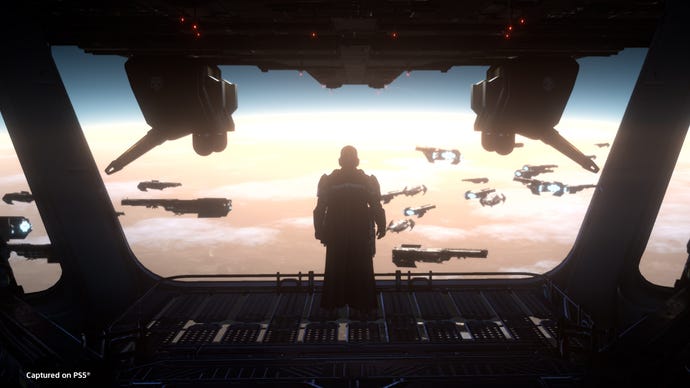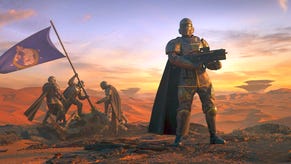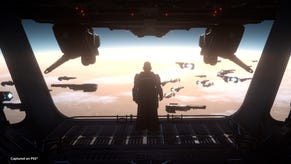Helldivers 2 showed me how badly live service gamification has broken my brain
I didn't realize how bad it had gotten until Helldivers 2 showed me the light.
I didn't realize how badly live services had altered my enjoyment of games until I really sat down with Helldivers 2. It hit me when I noticed neither the basic assault rifle or SMG had a progression bar attached to them. How would I be able to show off my dedication to my favourite gun without it? Wait a minute, when did I become so dependent on shiny lights and ticky boxes?
On paper, Helldivers 2 is everything I've wanted from a multiplayer shooter for years! It's stripped out all the unnecessary BS that you see spread around in live service games these days. No needy progression trackers, no lengthy grind to unlock all the weapons and equipment I want. No crafting - thank god. There are battle passes, but they don't expire. Helldivers 2 has no artificial FOMO, which is ironic, as literally thousands of people are suffering from good ol' fashioned organic FOMO thanks to oversaturated servers.
Sure, you can log in everyday and complete a daily task, but all you get is a big chunk of XP and some currency you can earn through regular gameplay. It's like someone dug up Helldivers 2 from a 2010s time capsule, but without the drab brown and grey colour scheme that would entail. Compare that to another game I play daily: Honkai Star Rail. Now look, I'm as big a fan of anime slot machines as the next guy, and Star Rail is one of the best. But with the current story content finished, I'm logging into Star Rail to wrap up dailies, use up my resources, and fill up a battle pass. On the other hand, I'm sat in the Helldivers 2 queue every time because Super Earth needs me to fight off Automatons, y'know?
Sure, I want to max out the battle passes, who doesn't? But I can do so on my own schedule, and with little urgency. I have a job now, I can't be grinding out defence missions all day, even if the people of Super Earth need me to. The knowledge that Helldivers 2 is waiting for me after work, without a blackjack of lost progress and inefficency to bludgeon me over the head with, is wonderful. It, like Tekken 8, makes me want to play because it doesn't punish me for not playing. Our relationship is not toxic, and like with a real relationship, that's great news.
Helldivers 2, surrounded by other games with more malicious (yet utterly normalized) retention practices can only be characterised as being like a cold Asahi on a warm day. The approach Arrowhead has taken with its monetisation sets the game up as a test of sorts. It's already brought in the players, but will it retain them as well as other games that come with dedicated retention-focused features do? It has a fair approach to monetisation, but can the quality and admirable ethos bring in the big bucks?
I think I'm safe in saying we all hope they do. It would probably be good for the industry as a whole if one of the biggest games of the year managed to achieve so much without participating in some of the more horrid practices we've all gotten used to. It opens up so many possibilities, granted the right lessons are learned from it. Sony, for one, is probably feeling damn proud of its publishing venture into live service games right now, given it can now hold Helldivers 2 high as a great success case.
I hope it, and the wider industry, takes away from this that sometimes you don't need to wave shiny lights, explosive level-up animations, and FOMO to get people invested in a game. So, if you find yourself bogged down with the weight of the typical live service approach, try out Helldivers 2.
Oh, who am I kidding? You probably already are.




.jpg?width=291&height=164&fit=crop&quality=80&format=jpg&auto=webp)




